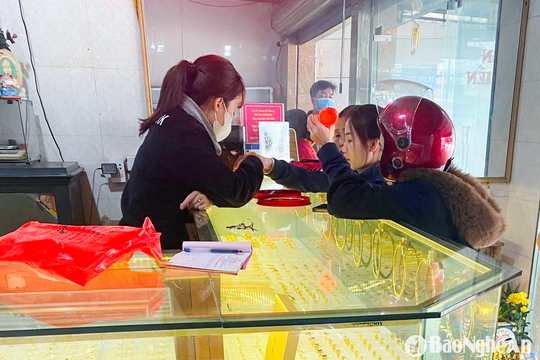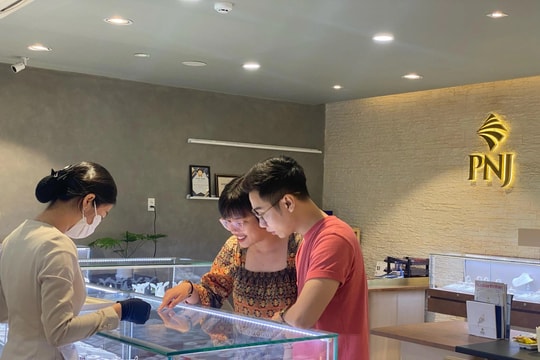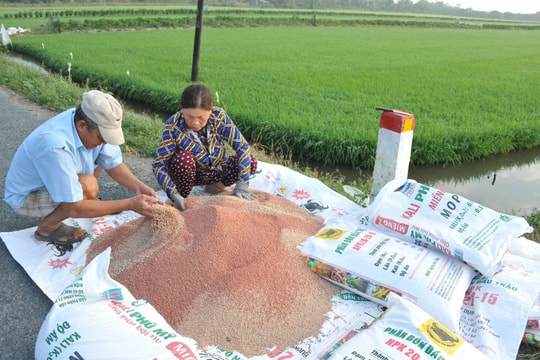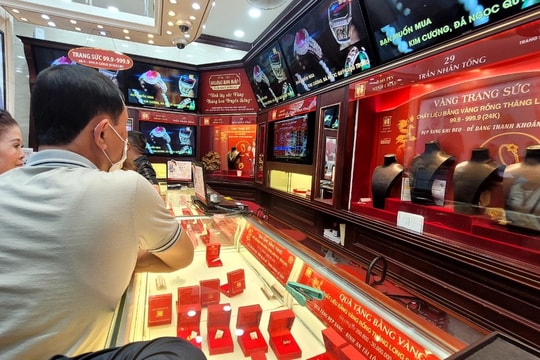Retail market: Domestic businesses are weak even at home
Domestic retail businesses are gradually losing ground in their own home market as they are forced into fierce competition with foreign-invested businesses.
Vietnam has hundreds of thousands of retail stores, about 650 supermarkets and 125 shopping malls. Currently, Vietnam's retail market is fiercely competitive with massive expansion investment from foreign-invested supermarket chains.
 |
| Many Vietnamese manufacturing enterprises are competing in a “waiting until the last minute” situation. (Illustration: KT). |
About a week ago, Central Group Corporation acquired Big C Supermarket System in Vietnam. This is also a step forward for foreign enterprises to enter the Vietnamese retail market. So what do Vietnamese retail enterprises do to compete with foreign enterprises at home?
Central Group's acquisition of Big C supermarket chain in Vietnam is the second Thai enterprise to acquire a foreign retail system in Vietnam in the past 4 months. Earlier, in early January this year, Thailand's TCC Group completed the acquisition of the entire wholesale system of Metro Group in Vietnam, including all 19 centers and related real estate, worth 655 million euros. This puts Vietnamese retail enterprises in a more competitive situation.
To maintain the domestic retail market, Saigon Co.op recently participated in this deal. However, this competition is not simple because domestic enterprises are weaker than foreign enterprises. While foreign retail enterprises have more advantages in buying, selling and merging, Saigon Co.op faces obstacles. Because Vietnamese retail enterprises wanting to buy Big C must go through many procedures, such as applying for a license to invest abroad. This proves that domestic retail enterprises are gradually weakening right at home. Many Vietnamese retail enterprises and manufacturing enterprises are competing in a "waiting until the last minute".
It is worth mentioning that in the past 9 years, when joining the WTO, Vietnam has opened its doors almost completely to the retail market but has not had a practical support policy for businesses in line with its integration commitments. That is, supporting businesses in training human resources, providing market information, marketing common brands... Vietnamese functional sectors should have done to protect domestic retail businesses, that is, localities must consider economic needs when allowing foreign investors to open more supermarkets and second stores.
Therefore, to create conditions for domestic enterprises to develop the retail market, Mr. Diep Dung, Chairman of the Board of Directors of Saigon Co.op, proposed that the Government develop a national strategy for developing the Vietnamese retail industry with a vision to 2030. Building 20 leading Vietnamese retail enterprises capable of competing with foreign corporations, while removing difficulties for enterprises in mergers and acquisitions.
In addition to the Government’s strategy for developing the retail market, retail businesses must innovate and improve the quality of customer service. Currently, many businesses are doing this.
Mr. Nguyen Tan Hoang Hau, Marketing Director of Thien Hoa Electronics Distribution System, said that the company continues to reinvest in the brand identity system, and continues to invest in the most modern electronics supermarket in Vietnam to increase competitiveness and attract investment.
Ms. Le Thi Thanh Lam, Deputy General Director of Saigon Food Joint Stock Company, said that the company will continuously invest in product innovation, taking advantage of understanding the needs of Vietnamese people, thereby offering suitable products at competitive prices to stand firm in the market.
In the current trend, not only retailers innovate and improve service quality, but also manufacturers must improve product quality and competitive prices so that their goods can enter the distribution channels of domestic and foreign retailers.
Because along with the development of the retail system, some large retail corporations from Thailand, Japan, Korea... also bring their goods into the supermarket system in Vietnam. Especially when integrating, there will be about 10,000 types of consumer goods exempted or reduced tariffs when entering the Vietnamese market and other countries in the region.
At that time, foreign quality goods will compete fiercely with Vietnamese goods in retail systems. And the worrying thing for Vietnamese goods is that many domestic consumers also prefer foreign goods with good quality and reasonable prices.
Therefore, according to Ms. Dinh Thi My Loan, President of the Vietnam Retailers Association, if domestic enterprises want to stand firm in the face of this fierce competition, they must review their production and business plans. Enterprises must make products that the market needs, not sell products that they have.
In addition, economic experts believe that according to the market rules, whoever controls the retail market and distribution system will control the economic space and regulate the production structure. Therefore, if businesses do not change their production, business and management methods to have increasingly better product and service quality and competitive prices, they are likely to lose right at home./.
According to VOV.VN
| RELATED NEWS |
|---|








